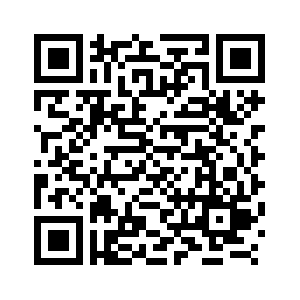KIEV, Sept. 1 (Xinhua) -- More than six months into the Russia-Ukraine conflict, almost 4 million Ukrainian children started their new school year on Thursday.
Svitlana, a deputy principal in a gymnasium in Kiev, told Xinhua that the new academic year will not be easy, either for students or the teachers.
The main challenges are the difficult emotions caused by air raids, unstable Internet and lack of gadgets for online learning, she explained.
Since the conflict began, the Ukrainian Ministry of Education and Science has introduced three models of education: distance, full-time and mixed format, she said.
"Schools are now obliged to ensure that students receive education in a format that is safest for them," Svitlana said.
Official figures show 1.78 million Ukrainian students have chosen online study, 1.25 million the mixed form of education and 864,500, mostly from the regions where there are no military actions, picked up in-person classes.
"Our gymnasium has chosen a mixed form of education, which provides for a combination of full-time and distance learning. It's quite comfortable for kids," Svitlana said. A gymnasium in Ukraine is a secondary school preparing students for university.
At the same time, she pointed out that the workload on Ukrainian teachers has increased significantly as they have to manage both online and offline classes.
"Out of 100 teachers in our gymnasium, about 30 quit. The main reason for them to leave is moving to other safer regions of the country or going abroad for a temporary stay. However, thanks to the teachers-migrants (from other regions), the schools of Kiev will not experience a shortage of teachers," Svitlana said.
The number of students in Kiev schools, she said, has also increased as many internally displaced families found shelter in the Ukrainian capital.
Tymofiy, a second-grade student who studies at a school in the Obolonsky district of Kiev, said he has back-to-school anxiety after the summer, but looks forward to starting classes.
"I am glad that the school year has begun, I really missed the school," Tymofiy said.
Tymofiy's mother Kristina noted that this year her son has switched from a private school to a public one, because the latter has a bomb shelter where students can hide from missile strikes.
"The bomb shelter was arranged under the school in a special room. It has Internet access, so pupils can continue the learning process even during air raid sirens," Kristina said.
The 31-year-old mother noted that she decided to offer her son offline education because most of his friends went either abroad or to western Ukraine, leaving Tymofiy isolated from social connections.
Besides, it is difficult for a seven-year-old to sit in front of the computer all day, Kristina added.
"I remember online learning during the COVID-19 pandemic, and it was very difficult. My son is not assiduous and it was hard for him to concentrate," she said.
Kristina stressed that she is not fully comfortable with sending her son to school during martial law, and yet she is doing her best to mitigate a possible emergency.
She said she is trying her best to adapt to the difficult situation. "Of course, I would like my life to return to normal, but for now we live in a new reality." ■



